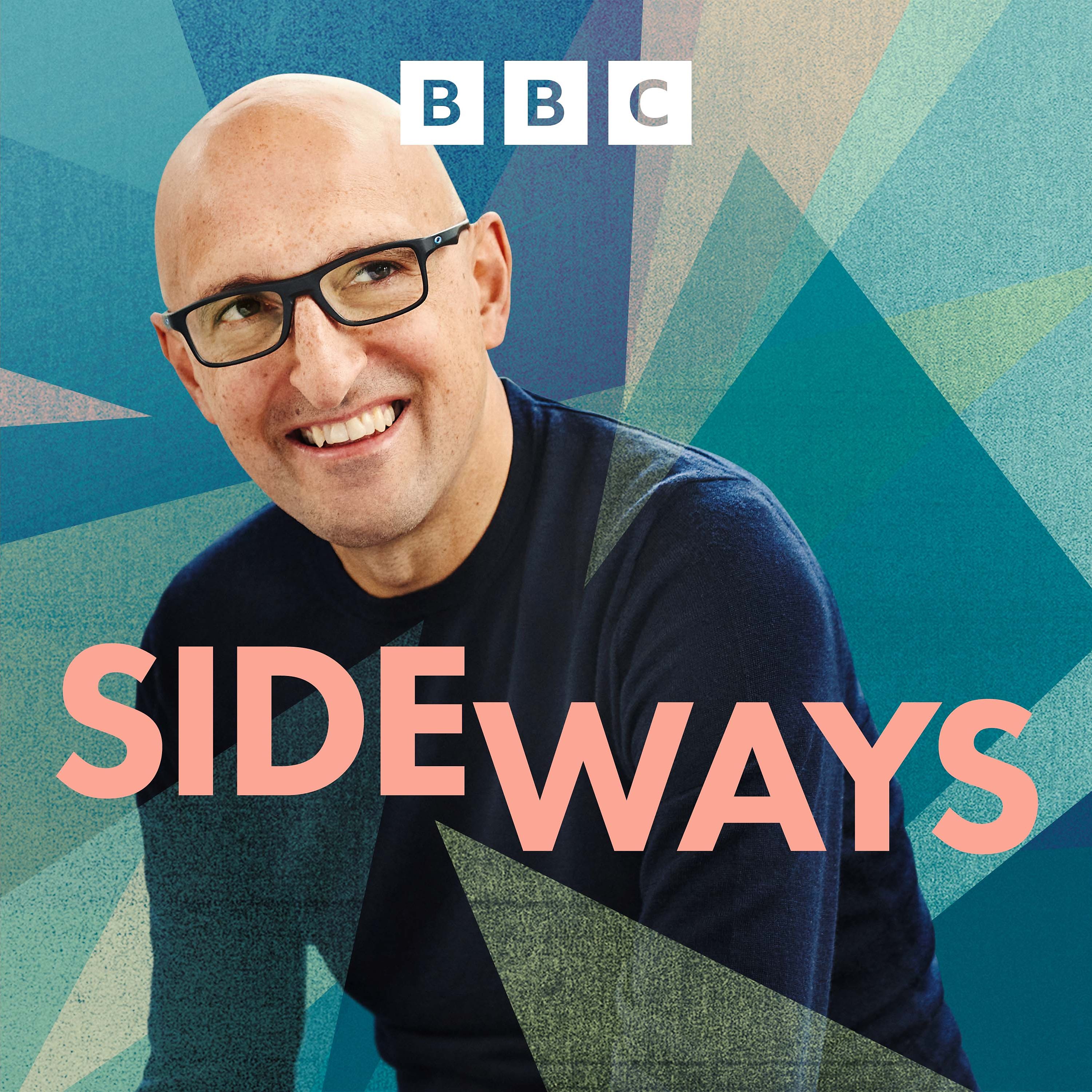

Sideways
BBC Radio 4
Best-selling author Matthew Syed explores the ideas that shape our lives with stories of seeing the world differently.
Episodes
Mentioned books

10 snips
Mar 5, 2025 • 29min
73. Reliving History
Lola Arias, an Argentinian theatre director and writer known for her groundbreaking documentary theatre, joins the conversation. The podcast delves into her ambitious play Minefield, where British and Argentinian veterans of the Falklands War unite to re-enact their traumatic experiences on stage. They confront painful memories and foster healing through shared storytelling. Emotions run high as mothers of fallen soldiers connect with the actors, shedding light on the deep bonds formed through artistic expression and the power of theatre to bridge divides.

33 snips
Feb 26, 2025 • 29min
72. Limitless Love
This podcast explores the remarkable journey of Pastor Gennadiy Mokhnenko, who has adopted over 40 street children in war-torn Ukraine. It raises questions about the limits and complexities of love, drawing on insights from biology and anthropology. Hear personal stories that challenge traditional views of familial love, including a heartwarming discussion on the deep connections formed through adoption. Unique perspectives on love, altruism, and resilience provide a powerful reflection on humanity amidst chaos.

29 snips
Feb 19, 2025 • 29min
71. Tempting Fate
Amelia Rose Earhart, a modern pilot and descendant of the legendary aviator, shares her gripping journey of retracing Amelia Earhart's historic flight. She reflects on the emotional weight of facing perilous challenges while exploring themes of identity, destiny, and the allure of taking risks. The discussion delves into how public scrutiny and personal ambition shape self-discovery. Alongside scholars, Amelia navigates the fine line between courage and recklessness, raising profound questions about legacy and the nature of fate.

34 snips
Feb 12, 2025 • 29min
70. Digital Ghosts
Amy Kurzweil, a cartoonist and writer, shares her journey of creating 'Fredbot,' a chatbot simulating conversations with her late grandfather, a Holocaust survivor and musician. The discussion delves into the emotional and ethical implications of digital immortality and how AI reshapes our memories. Joining her are experts who explore the impact of digital representations on grief and legacy, reflecting on ancient philosophical debates on life and death. Together, they question the authenticity of memories and the evolving nature of grief in the digital age.

32 snips
Feb 5, 2025 • 29min
69. Memento Mori
William Basinski, an American composer celebrated for his ambient music, dives into the beauty of decay and transformation. He discusses his journey with deteriorating reel-to-reel tapes that turned into mesmerizing soundscapes. The conversation extends to Detroit's abandoned neighborhoods, revealing how urban ruins reflect stories of impermanence and inspire artistic expression. Basinski's insights evoke a profound appreciation for silence and life's transient nature, reminding us of the hidden narratives within decay.

22 snips
Jan 29, 2025 • 29min
68. Bliss in Suffering
Renu Arora, an actor, singer, and writer, shares her transformative experience after surviving a bus accident, where she found profound joy amidst trauma. Alongside David Wright, a former soldier, they discuss the surprising capacity of the brain to find bliss through suffering. The fascinating conversation explores how extreme experiences reshape identities and can lead to spiritual awakenings. Insights into meditation as a healing tool are also shared, revealing how these journeys enhance connections with others and shift perspectives on pain.

27 snips
Jan 22, 2025 • 29min
67. Reality Shifting
Dive into the captivating world of reality shifting, a viral trend that has teenagers claiming they can jump between alternate realities. Explore the intriguing blend of personal stories and psychological implications behind this escapism. Delve into how our brain constructs what we perceive as reality, challenging the boundaries of existence. Discover the surprising skills gained from these experiences and uncover the dark side of wellness practices, emphasizing the need for awareness in spiritual explorations.

5 snips
Jan 10, 2025 • 2min
Sideways: Series eleven - coming soon…
Dive into compelling tales of near-death experiences and how the mind responds during trauma. Uncover the unsettling truth behind a seemingly welcoming yoga school that hides abuse and exploitation. Explore the ethics of using AI to simulate conversations with the deceased, prompting deep reflection on life and death. This collection of stories challenges perceptions and encourages listeners to view decay as a pathway to rebirth, sparking thought-provoking discussions on contemporary issues.

29 snips
Jan 10, 2025 • 28min
25 Years of the 21st Century: 5. The Age of Artificial Intelligence
Geoffrey Hinton, known as the godfather of AI, shares insights on the evolution of artificial intelligence and its potential to surpass human intelligence. He warns about the dangers of autonomous weapons on future battlefields. Historian Margaret MacMillan enriches the discussion by highlighting AI's societal impacts while calling for ethical governance in navigating its rapid advancements. Together, they contemplate the transformative benefits and existential risks of this technology, urging timely measures for safety and regulation.

47 snips
Jan 9, 2025 • 29min
25 Years of the 21st Century: 4. The Age of Changing Families
In this engaging discussion, Meghan Nolan, an Irish novelist and journalist, shares her insights on dating apps and the quirks of modern relationships. Sarah Harper, a Professor of Gerontology at Oxford, brings her expertise in marriage and family dynamics. Together, they explore how technology has transformed connections, questioning the depth of online matchmaking. The guests also highlight evolving relationship norms, the rise of alternative family structures, and the balance of social media's influence on friendships and genuine human interactions.


